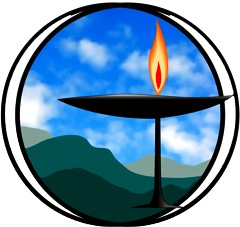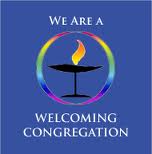Presenters
Index Page
Barker, Geraldine
Bodner, Mark
Burton, Laura
Castleberry, Kasey
Davis, Sam
Davis, Terry UU minister
Frost, Edward UU minister
Kibler, Myra
Nicholson & Brown
Sally Pamplin
Robison, Gerald
Seidman, Karl
Sheber, Larry
Sherod, Bob
Simmons, Antoine
Tremblay, Alexandra Immunologist
Waddell, Donna
Walker, James
West, Herb & Myrna
Woehr, Terry
Wood, Bruce
Other Sources
Why (Should I Believe That)?
by Rev. Dr. Edward A. Frost
Presented 2012 May 06 to the congregation of Mountain Light Unitarian Universalist Church in Ellijay GA.
 In Walker Percy's marvelous novel The Last Gentleman, the scene is a hospital room. Present are Will Barrett, a rather flaky, perhaps overly-earnest seeker of life's meaning; young Jamie, the tragic figure, who Will took under his wing as mentor and paid companion; Jamie now at the end of his meager days, dying; and a priest, who Jamie's family – specifically Val, Jamie's sister, something of a nun-entrepreneur has forced into the scene to make sure the boy dies in a state of grace.
In Walker Percy's marvelous novel The Last Gentleman, the scene is a hospital room. Present are Will Barrett, a rather flaky, perhaps overly-earnest seeker of life's meaning; young Jamie, the tragic figure, who Will took under his wing as mentor and paid companion; Jamie now at the end of his meager days, dying; and a priest, who Jamie's family – specifically Val, Jamie's sister, something of a nun-entrepreneur has forced into the scene to make sure the boy dies in a state of grace.
The priest, inconsequentially stranger to them all, bends to Jamie's bedside and asks, "Do you accept the truths of religion?"
Jamie moves his lips. "What?" asks the priest, bending lower.
"Excuse me, Father," says [Will]. "He said, 'What.'"
"Oh," said the priest, turned both fists out, and opened the palms. "Do you accept the truth that God exists and that He made you and loves you and that He made the world so that you might enjoy its beauty and that He himself is your final end and happiness that He loved you so much that He sent his only Son to die for you and to found His Holy Catholic Church so that you may enter heaven and there see God face to face and be happy with Him forever?"
"Is that true?" said Jamie clearly, opening his eyes and goggling. To [Will's] dismay, the youth turned to him. Will cleared his throat and opened his mouth to say something when, fortunately for him, Jamie's bruised eyes went weaving round to the priest. He said something to the priest which the latter did not understand. The priest looked up at Will. "He wants to know, ah, why," said [Will.] "Why what?" "Why should he believe that?"
The bewildered priest can think of nothing more to say in response than "Because it's true." Jamie mutters again, as he begins his fall into oblivion. And, again, Will interprets, "He's asking me how you know that." Oh, my. Of course, the priest just does. He just knows that. He believes all that because, as he says, if he didn't he wouldn't be there, and there would be no salvation, and so on and so on.
Why do people believe what they believe and how do we know what we believe is true?
Much of what people believe, of course, they believe more or less because they always have and certain beliefs are part of their personal and familial identity. People tend to believe what they were brought up to believe and to depart from those familial beliefs is to risk isolating oneself, or being isolated from, one's family, including one's extended family, the clan. It would be an odd and remarkable child indeed who did not believe what his family (his parents, grandparents, clan) told him was true to believe. In fact, such straying from the family belief system is one way of identifying religious genius – or, in telling the story in years to come, separating the incarnate god from the common herd.
The story is told in the Christian Scriptures of Jesus at some tender age not showing up for supper and being found, not at the local pool hall (or wherever kids hung out in Nazareth) but in the Temple, showing up the rabbis for the novices they were. Great pains are taken in identifying the Holy One by setting him or her apart from the common beliefs of his or her origin. Most of us start out, at least, by believing what we are told to believe by the spokespersons for our well-meaning clan.
My father taught me to believe that there is a world beyond our sight (unless one knows where to look, and how to look), a world that is populated with elves, fairies, and phantasms of various kinds. Neither he nor my mother had any interest in common Christian beliefs. It was my grandmother, a Jehovah's Witness, who finally took over and told me to believe in God, in Satan, evil spirits, and Archangels, and in the horrible day of reckoning due any day now.
My young counterparts in India, China, Africa, Colombia, or high in the mountains of Tibet were being told other stories, adopting other beliefs that made them at home in the world into which they were born. Why would we question what grandmother told us sitting by the hearth as she sewed or the stories of the origin of our people that grandfather or uncle told around the great fire?
Part of the power of belief is the authority it comes from. If I'm six years old and the man I love says, "Look, here's where the fairies dance at night," am I going to say, "What, are you out of your mind?" Why should the wise ones – the fathers, mothers, grandfather and grandmothers – why should they lie to us? They know why the rabbit hops to this day as it runs and why the sun rises over only those mountains.
Why should I believe that? Jamie asks with that wonderful, refreshing innocence of one who never quite makes it fully into the world of supposed truth and reality. But, then, why should I not believe that? Why should I not have believed in protective elves or in lovely fairies in a world rocked by war and in nights lit by fire? Belief is a garden of the mind.
Unfortunately, of course, as Sophia Fahs wrote, "Some beliefs are like walled gardens." They keep us safe inside – for as long as the wall holds and the barbarians are held at the gate. But what of those barbarians? That is, what of the dark side of belief? My father gave me beliefs – why should I not have believed – beliefs that soothed me, made me feel safe, explained all I needed to know, for then, about the world?
But my father also gave me beliefs to wall the garden in. There were the barbarians – and they were just about everybody who was not like us. We lived, in that time, in a world of enemies, of course – whole nations and races of people with whom we were at war. But beyond enemies there were the Micks, and the spics, and the wops, and the fuzzy-wuzzies. A whole world of people not us, so went the belief to be absorbed. And if it was true about the lovely fairies and the guardian angels, then it must have been true about the other, about those who are not us, about those to whom we were superior and better made.
We come into this world "trailing clouds of glory" to inhabit a world made up of differing dollops of truths, lies, and beliefs that may lie somewhere in-between.
Belief explains things. "I believe in God, the Father Almighty, Maker of heaven and earth." "Why should I believe that?" It explains things. The less information we have to the contrary, the more belief explains why and how things are. The thunder means the gods are angry. The illness that is sapping your life is punishment for your sins. God took your little child to be one of his angels. Belief creates the world we live in or want to live in. Unveiling the real world – well not everyone is up for that. To some extent, psychosis is a system of belief that explains one's world whether one likes the terms or not.
So, we inherit our beliefs from the clan for whom the beliefs explain their world, beliefs, so the clan must assume, that will explain the world to us in the same way. After all, that is the duty of the clan and of the elders – to pass on the beliefs that tell us who we are. They must not send us out into a world that has no explanation. The beliefs we gain from the elders and the clan provide us with what is, perhaps for awhile, a necessary circumscription, a world small enough to be manageable; a walled garden. As it was for the race, so it is for the individual.
Maturity ("human" maturity and religious maturity) has to do with the development of the ability to doubt: "Why should I believe that?" Doubt has been portrayed by the guardians of faith as the work of the devil – the temptation against faith. A man in the Gospel of Mark says to Jesus, "I do believe. Help me in my unbelief." There is doubt. The edge of maturity. Belief that begins to falter.
In the history of ancient Greece, there is a period known as "The failure of nerve." The Greeks actually gave up their belief in the gods and decided to go it alone. But it was not the fullness of time. They were not ready to "go it alone." The anxiety of unknowing, of unbelief, was too great. A failure of nerve. The gods were invited back. Not always easy – as Annie Dillard has written – to recover the gods one has asked to leave. Where does doubt come from? Given the power of belief, that which has given us identity, which has defined the very world we live in, where does the power come from to ask the gods to leave, to doubt, to believe otherwise, to bring down the circumscribing walls?
One might say that knowledge will displace belief. Know the truth and the truth will set you free. But that's not really the case. As a theologian and a one-time psychotherapist; I know very well that belief can be more powerful than truth.
There are millions of people who live in a world in which science has provided their cell phones and their email – perhaps even kept them alive – and yet believe passionately that the world was created by God about eight thousand years ago – carbon dating notwithstanding. How can they believe that? Because some beliefs are part of a larger system of beliefs that are essential the meaning of one's existence. The belief that God created the world eight thousand years ago is a stone in the arch that, if removed, would bring down the whole structure.
So, yes, knowledge can create doubt. As societies, we provide education to supplant ignorance, to supplant "mere belief." It is better that people learn about illness and the vagaries of human behavior than that we burn women for being witches. It is better that we learn how to develop medications that heal, rather than draining the blood out of the sick, covering them with leeches, or waiting for God, in his goodness and wisdom, to heal – if that be his will. But, again, knowledge does not always prevail against belief.
There is experience. After the father loses interest, the years go by, and one doesn't see elves any more, one begins to wonder. To be sustained, belief has to be fortified with experience. One has to either see elves or think one does. After awhile, the father gone, I began to play with those people who were not like us. I began to work with them, learn with them. After awhile, experience belied belief. It turned out they were like us after all or at least they certainly weren't any worse than we were. Some beliefs are like walled gardens and, sometimes, all things being equal, getting through the gate and going out into the world beyond is all it takes for some to form new beliefs based on new experience.
This is the reason for bringing quality early childhood education to every level of our society. Education is a gateway, education in the context of diversity where the beliefs inculcated in poverty and ignorance can be confronted in the world beyond the ghetto walls. A child's belief that she is of little worth, his belief that there is no hope, no way out, these are stubborn beliefs that only new realities, new possibilities can change. As the saying goes, "Seeing is believing." Many cannot change the beliefs that bind them until they can see new possibilities to believe in.
So, the power of belief may bend to knowledge. The power of belief may bend to experience. I believe, too, that belief can change by influence – another reason why, in Sophia Fahs words, it matters what we believe. Just as I once believed, for better and for worse, what my father and my clan believed, so I have taken to myself beliefs of others who came into my life. I confess I have had a tendency throughout my life (for good or for ill in this case or that) to hero worship.
Again, belief is linked to identity. What we believe is what we are. It follows, then, that if we want to be like someone we will want to see the world the way she or he does; we will want to believe what the hero believes. That is, after all, the gift or the curse of heroes. You are someone's hero. Be aware of what you believe.
Finally (not really finally, but one has to stop somewhere) it seems to me that doubt, the power that counters the power of belief and topples the walls to a wider world, is sometimes, in theological terms, the gift of grace. We don't do anything to earn it. We don't do anything to bring it about. Yet, seemingly, out of the blue, out of the depths, or from the Oversoul to our soul, comes doubt. "Why should I believe that?"
Saul, the persecutor and abuser of Christians, becomes Paul, the Apostle, believing in the Christ he ridiculed. The Nazi officer's inbred beliefs about Jews fall from him like snowflakes. The white farmer opens his store-room to the runaway slaves on the underground railway. Charlton Heston throws down his gun. Well, that hasn't happened yet – but who knows?
Belief is obviously a curious and complicated human phenomenon. It tells us and the world who we are. It leads us by on the other side or leads us to pick up the sufferer and lift him to a place of healing. It walls us in and narrows our view or opens the gates and sets us free.
It matters what we believe. May we never cease from believing and never cease from doubt.






